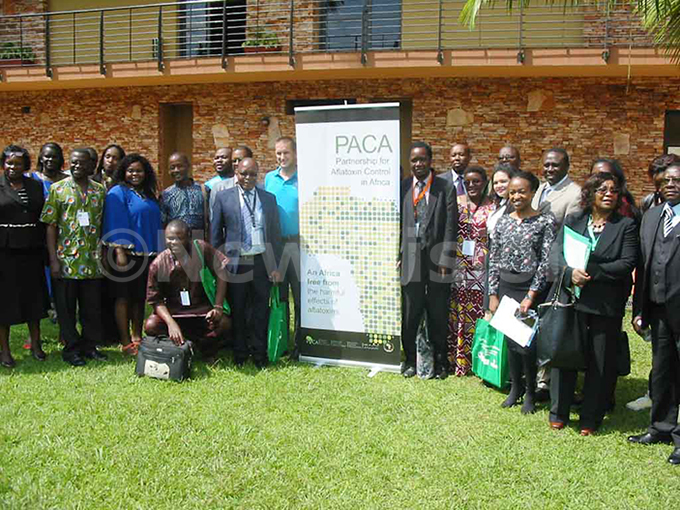Agriculture training colleges to mainstream courses on aflatoxins
Jun 08, 2017
Aflatoxins are poisons which contaminate key African staple crops such as ground nuts rice and sorghum and maize

The Ministry of Education is including course units on aflatoxins in the school curriculum to increase food safety and reduce food contamination.Unsafe foods as a result of aflatoxins have continued to undermine food security, nutrients and agribusiness on the Africa continent.
The review to incorporate the latest modules will run up to August and in the next academic year starting September will be full course units in the curriculum, according to Anyang Anna Grace Head of Department Human Nutrition, Bukalasa Agricultural College.
Aflatoxins are poisons which contaminate key African staple crops such as ground nuts rice and sorghum and maize. They are produced by soil fungus called Aspergillus that injects growing crops particularly when they are stressed heat and draught. Africa loses USD 670 million annually on international market.

Health experts say that aflatoxins induce liver cancer and stunted growth among children.
Anyango said they are reviewing the old program putting in new knowledge to enhance food security and quality control.
"We have introduced course units of where will address matters to do with mycotoxins and aflatoxins," She said.
The courses to be introduced are Introduction to micro biology, food systems and nutrition.
The colleges have been funded by UNICEF to have the modules incorporated. She says. But there are still a number of policies that are affecting the lobbyists.
"Nutrition issues have not been given the priority they deserve. When you talk about aflatoxins and mycotoxins, these are issues of nutrition and food security," Anyango noted.
When we go to Mulago Cancer Institute more than 50% of the cancers are attributed to diet that's depending on our feeding habits," Anyango said.
She added that food and nutrition issues need to be addressed right from the farmers and other actors along the food value chain.
Statistics indicate that 40% of food commodities are contaminated.
On gender issues, Anyango singled out the other biggest challenge remaining is the gender issues saying women being the biggest actors in the nutrition issue ,have no program in particular addressing their plight.
Speaking at a backside conference during the Comprehensive African Agricultural Development program (CAADP) , Alliance for Agriculture in Africa (AGRA) Director Agnes Kalibata there is still a disconnect by authorities in Africa to predict what will happen and how to respond to calamities when they happen.
"What types of measures to build resilience-we have to come up with new solutions," Kalibata said. We need different technology to deal with drought to avert its side effects," she added.
